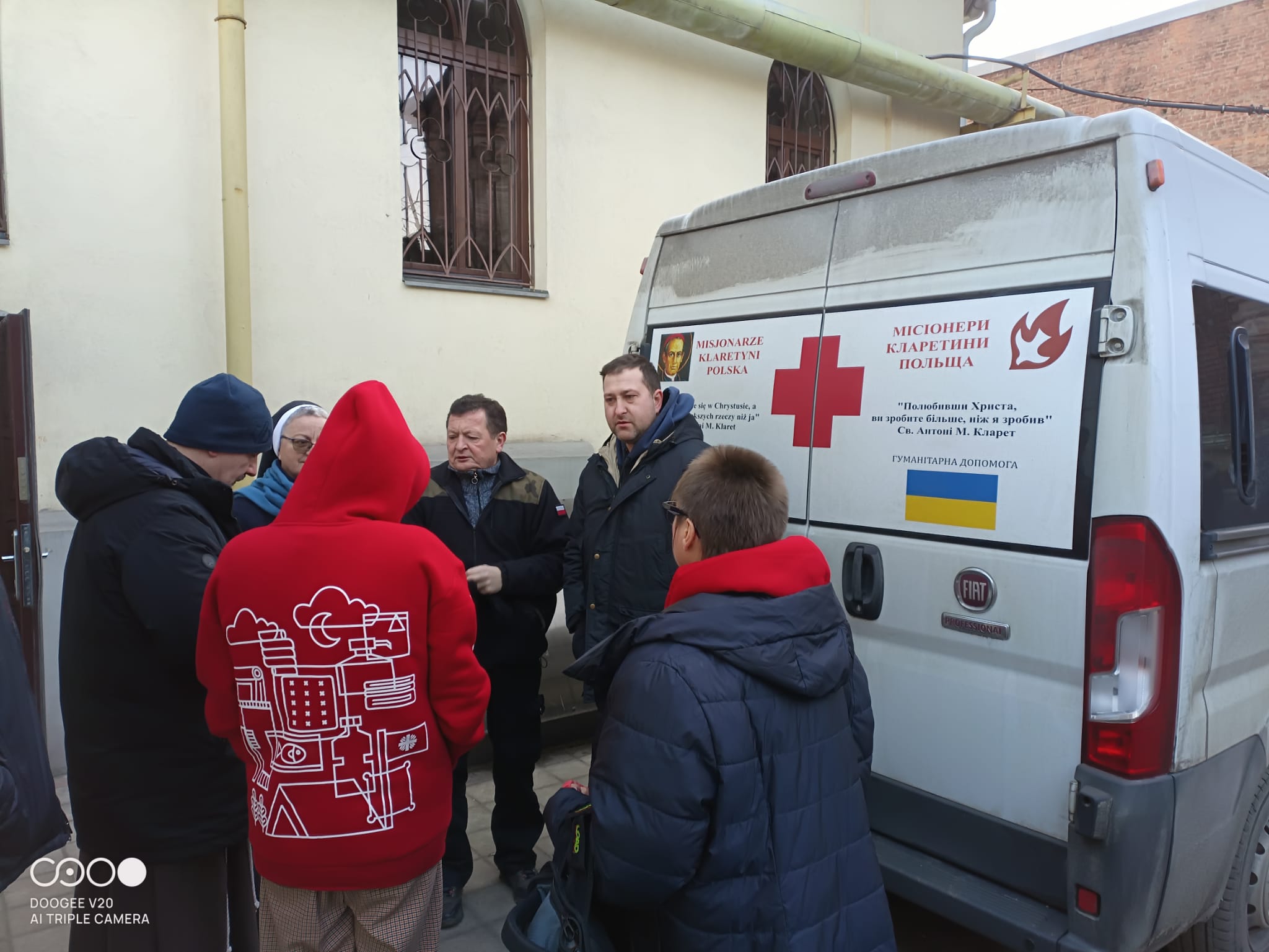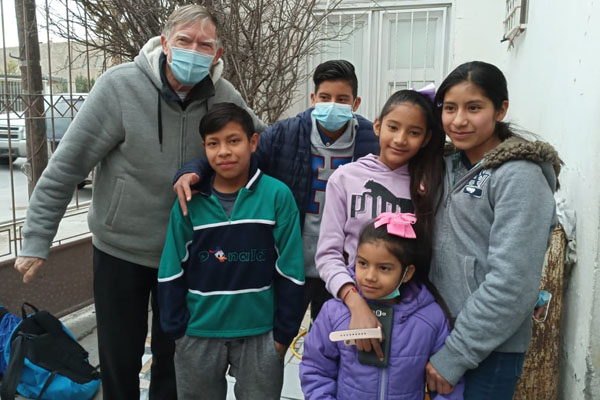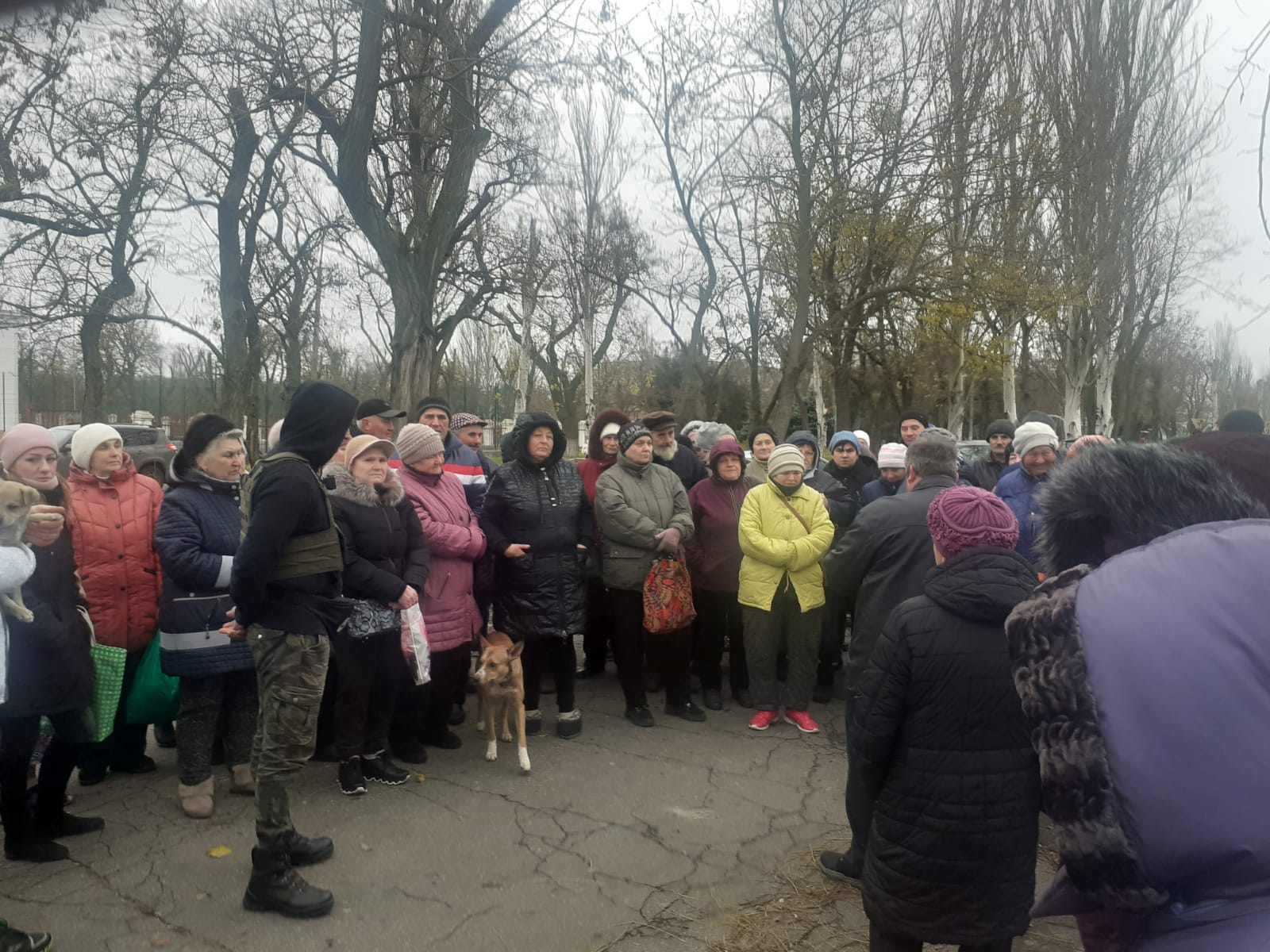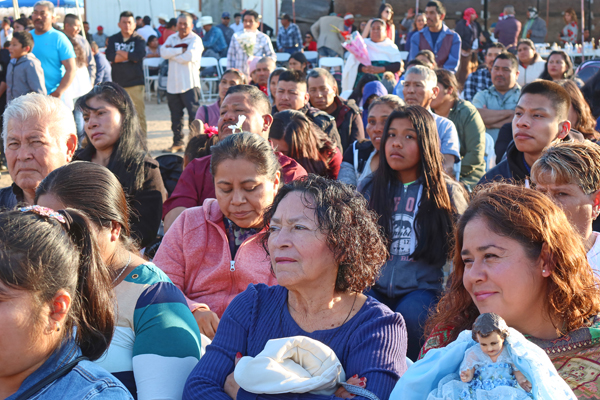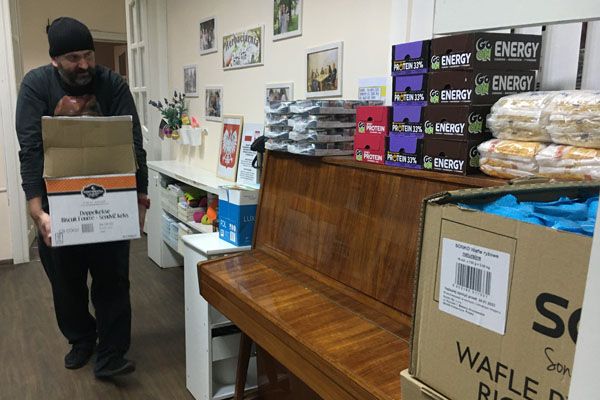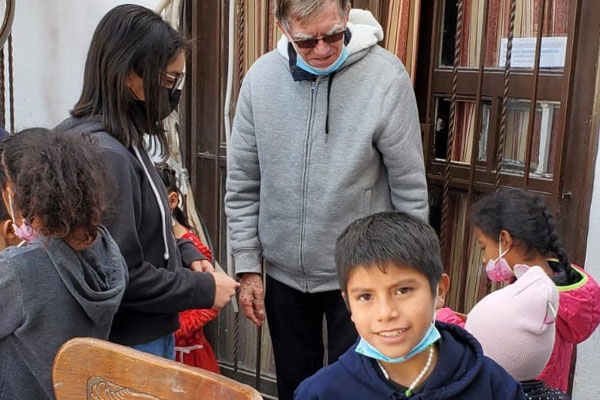Since 1980, the United States has admitted more than 3 million refugees seeking asylum from dangerous situations. — U.S. Department of the State
Campesino Outreach
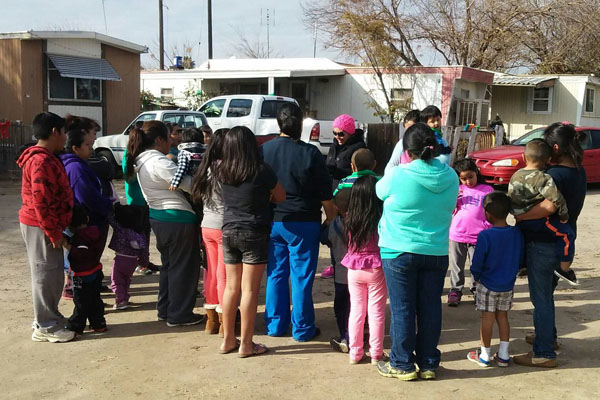
Campesino Outreach at St. Anthony Mary Claret Parish in Fresno, California provides food, clothing, medical supplies, and other needs to agricultural workers living in eight migrant camps located around Fresno County.
The parish ministers to some 800 families—who primarily speak English, Spanish, or Hmong—from Fresno and the surrounding farming areas. Most parishioners are first-generation immigrants who have been in the United States for decades trying to establish themselves. The parish has more than 30 highly active ministries that include citizenship and English classes, addiction and parental counseling, clothing, and food distribution for families and the homeless.
A vital outreach for the many migrants of the parish is the Campesino Ministry program, providing for the needs of migrant workers in eight migrant camps, all within 30 miles of the church. The majority of the United States’ agricultural production that comes from California is produced in the San Joaquin Valley. People from all over the world—including Peru, Mexico, El Salvador, Honduras, Southeast Asia, and other states in the U.S.—come to the valley to live and to find work in the grape and almond plantations.
“Although Fresno is a Hispanic community, there are many Hispanics who arrive here on their own and feel lonely, like outcasts in society,” says Fr. Alex Gatain, pastor of St. Anthony Mary Claret Parish. Fr. Alex says that many parishioners are alone and far from their families, and some struggle with alcoholism and isolation. “Our parish is a place where they find that sense of family and connection with the community.”
Because of the seasonal nature of farming, the migrant camps experience work stoppages between various crop seasons. During the stoppages, year-round camp residents are not always able to meet their basic needs, including food and warm clothes in the winter.
Volunteers from the parish visit the camps in teams; at any given time, there are six teams working on the ministry. The teams visit each camp at least once a week for several hours of meaningful interaction and service. They distribute food and warm jackets to the migrant workers to ensure they can maintain a decent quality of life. They also purchase and distribute over-the-counter medications, while connecting migrant workers with medical clinics that can help them.
Some parishioners have been volunteering in the Campesino Ministry for the entirety of its 40 years of existence. With the support of Campesino Outreach, migrant workers residing in these camps have access to supplies to meet their needs continually, even when between cycles of agricultural work.
Humanitarian Relief Efforts in Ukraine
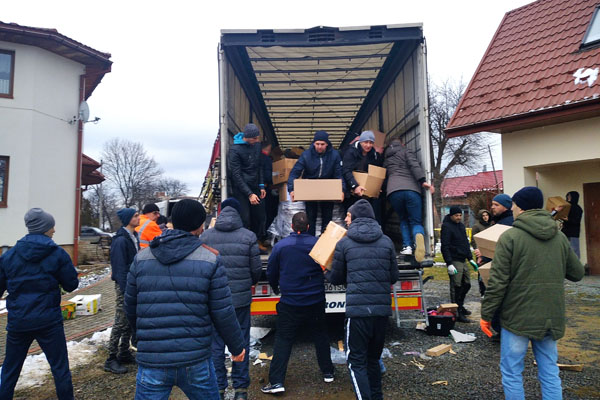
Humanitarian Relief Efforts – (Ukraine, Haiti) Since the beginning of the war, the United Nations refugee agency reports that more than 8 million people have been forced to flee their homes in Ukraine, with Poland alone accepting more than a million refugees.
In addition to their normal work, the Claretian community now serve the Ukraine humanitarian crisis as drivers, transporting mothers with children to the Polish border; organize food, clothing, and medicine; and provide money to those who fled with nothing. They are doing their best to stay safe, but the situation could change at any moment.
The Claretian Missionaries currently have three members working in the Ukrainian town of Truskavets, near the Polish border. Fr. Wojciech Kobylinski, CMF., Fr. Krzysztof Labedz, CMF, and Brother Marcin Kukus, CMF, have been helping refugees escape to Poland and supporting those who traveled west to flee the fighting in the east.
St. Jude League truly makes a difference in the lives of families impacted by forced migration and refugees. Because of you, they have a chance at building a future!
– Fr. Reegan Soosai, CMF
Each year thousands of refugees of forced migration come to the border seeking asylum and safety in the United States. These individuals and families face great personal risk should they ever return to their homes. Resettlement in the U.S. offers refugees the chance to rebuild their lives in safety and security, but refugees still face many challenges with adapting and thriving in their new environment.
Most refugees have left their homes unwillingly and with only the clothes on their backs. Many have experienced or witnessed traumatic events before arriving in the United States. They have to start from scratch in a place where they often know little of the language and culture. They may struggle to support themselves economically or struggle with isolation and stress.
The amount of support received from both formal and informal social networks is an important factor in refugee success. Refugees with strong support systems are better able to share their experiences with others, reduce mental distress, and access crucial services like health care. Also, access to a faith community or organization where they can make connections, both with other refugees and with the wider community, helps refugees navigate the resettlement process.

